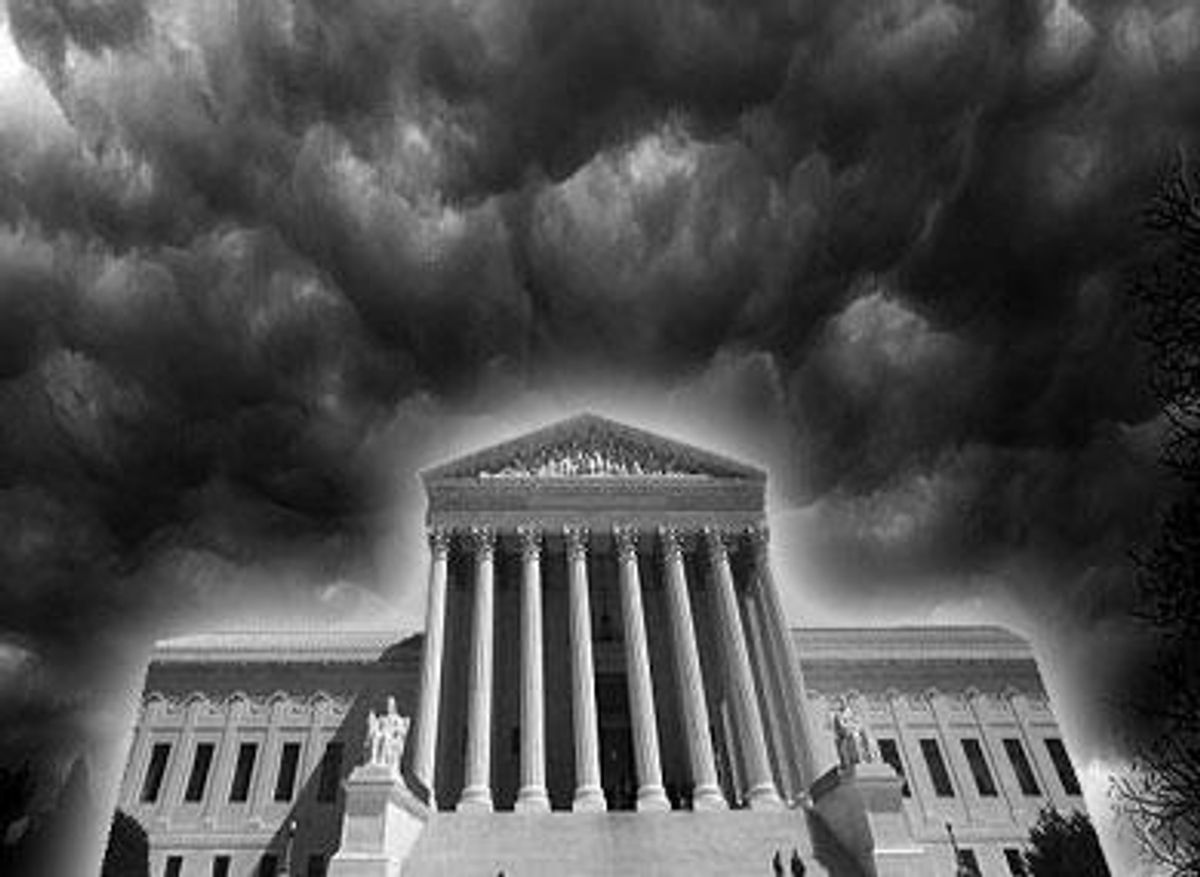Attorneys responsible for a new federal challenge to Proposition 8 on Wednesday rebuffed outrage from LGBT legal organizations, which contend that such a case before the U.S. Supreme Court is premature and could have disastrous consequences.
Speaking at a press conference in Los Angeles, Ted Olson and David Boies, who argued opposing sides in Bush v. Gore before the U.S. Supreme Court in 2000, defended the lawsuit brought on behalf of two California gay couples as a necessary step following Tuesday's Prop. 8 ruling.
"There are going to be many people who think this isn't time to go to federal court," said Olson, who was solicitor general under President George W. Bush. "But David and I have studied constitutional law longer than we'd rather admit, and I think we know what we're doing ... this case is about the equal rights guaranteed to every American under the U.S. Constitution."
The suit is an about-face to longstanding strategy among LGBT legal groups that have advocated a state-by-state approach to create the momentum needed for a successful challenge at the federal level.
"We have only one shot at the U.S. Supreme Court, and any attorneys bringing a case that will affect the freedom and legal status of an entire community bear a very heavy responsibility to be certain they have fully considered the consequences," said Shannon Minter, legal director for the National Center for Lesbian Rights who served as lead counsel for the Prop. 8 challenge.
On Wednesday a coalition of LGBT organizations, including Lambda Legal and the Human Rights Campaign, released a statement discouraging couples from filing federal suits -- in part because the court is currently unlikely to rule that a federal constitutional right exists for same-sex couples to marry, they claim.
"We think the risks of a negative decision that would harm gay people are greater then the potential benefits," said Jennifer Pizer, senior counsel and marriage project director for Lambda Legal.
But referring to a 1967 Supreme Court decision that struck down state laws barring interracial marriage, Boies said the high court's record on civil rights cases over the past few decades "makes it crystal clear that marriage is a fundamental right guaranteed by the federal government.
"Reasonable minds can differ when a constitutional challenge should be made," Boies said. "But when people are being denied constitutional rights today, I think it is impossible as a lawyer and an American to say, 'No, you have to wait.'"
Olson and Boies argue that relegating California same-sex couples to domestic partnerships instead of full marriage rights is a violation of equal protection and due process clauses under Fourteenth Amendment of the U.S. Constitution.
In its ruling on the constitutionality of Prop. 8, Boies said, the California supreme court "went far to point out that this decision was about the California constitution. It did not suggest that those who want to seek rights at the federal level [have no basis]."
Olson's involvement in the case drew immediate scrutiny from reporters, who questioned his conservative Republican background and affiliation with organizations like the Federalist Society.
"I don't think I've ever been a part of any organization that's antigay or believes gays are not entitled to equal rights," Olson said in response. "The Federalist Society doesn't have any creed at all. It brings together people who want to debate important issues having to do with the law."
The suit is funded by the newly formed American Foundation for Equal Rights, a legal advocacy organization launched by political strategist Chad Griffin. A former communications staffer for the Clinton administration, Griffin has worked on political and social causes for Brad Pitt and Rob Reiner, among others in the entertainment industry. He declined to elaborate on the organization's board members or donors, saying that information will be provided in the coming days.
The success of any federal challenge to state bans on gay marriage largely depends on the future composition of the Supreme Court, said University of California, Los Angeles, law professor Erwin Chemerinsky.
"I've always believed that in my lifetime that the Supreme Court will rule that the denial of marriage equality violates the U.S. Constitution," Chemerinsky said. "The question is whether it's too soon to risk that the court will reject it. We don't know who's going to be on the court."
Should the liberal-conservative balance of the court remain unchanged in coming years, Chemerinsky predicted Justice Anthony Kennedy would likely cast the deciding vote in such a case.


















































































